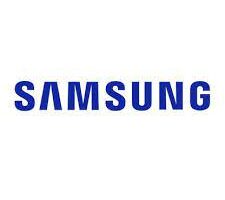Big Data Revolutionizing Samsung Operations and Product Development

Samsung use of data analytics in electronics product development and semiconductor manufacturing
As the world’s largest provider of data storage products, Samsung plays a pivotal role in allowing data storage and high-performance compute for AI/ML applications. The company is the leading manufacturer of DRAM memory chips, with 39% market share, used in data centers across the globe and is at the leading edge of innovations in high-bandwidth memory (HBM) used in AI/ML applications. With the company playing a crucial role in the semiconductor undergirding of the data analytics revolution, the firm itself is utilizing data analytics to enhance its business.
Two divisions have seen data analytics impact their operations in recent years: the electronics division and device solutions division which houses their semiconductor segment. While the semiconductor arm supplies chips to data centers, in 2021, Samsung launched a big data center of its own to help its electronics division better analyze and forecast sales of its products. Samsung intends to utilize the data analysis from the center to help guide both its strategy and product development. A Samsung official describes the center’s responsibility as “devising strategies on product development and sales based on big data.” Samsung’s recent BESPOKE refrigerator and its Sero auto-rotating flat screen TV are both examples of products birthed from its big data analysis. Other areas in Samsung’s electronics segment that are utilizing big data are its Bixby virtual assistant product and SmartThings home automation software platform. The big data center will serve as a central hub to consolidate data center expertise. This is a strategic approach different to an embedded approach that other companies have taken, wherein individual data scientists are housed in different departments throughout an organization. The investment in the big data center serves as a central node of the company’s capitalization of data as an asset generating value to the company’s business units.
Samsung’s semiconductor business is vertically integrated, spanning design and fabrication. On the fabrication end of the semiconductor ecosystem, Samsung’s top competitor is TSMC, which recently began pre-production of the latest semiconductor die shrink – 2 nm mode process manufacturing. Samsung has not yet started pre-production and is projected to be behind TSMC in commercializing this latest generation of the fabrication process.
To better compete with TSMC, in August of 2023, Samsung announced that it would use generative AI and big data analytics to improve its chip production efficiency. The goal is to use generative AI analysis of their manufacturing processes to yield insights to improve wafer yields and decrease defect rates. Here again, Samsung has taken an interesting approach on how to operationalize this strategy. The company is working with Naver Corp. to develop its generative AI capabilities and eliminate reliance on developers such as ChatGPT. While the use of this generative AI, data analytics nexus will start in the Device Solutions division to improve semiconductor yield and defects, the company plans to expand this to approach to other division especially to the company’s cash-cow, smartphone manufacturing.
The use of AI in semiconductor manufacturing will rapidly increase in the next decade as engineers hit a wall on human capabilities to identify defects and improve equipment efficiency and use. An interesting thought is the regenerative interdependency that this dilemma presents: improvements in AI software system require improvements in the semiconductor hardware layer used in high-performance computing data centers, both in performance and efficiency; now, improvements in the semiconductor hardware layer will require improvements in the AI abilities to improve the semiconductor layer itself. Is this a non-circular interdependency? Will this positive feedback loop have an asymptote? These are crucial considerations, not just for Samsung executives, but for the semiconductor industry as whole.



Thanks for your work, Abdoulaye! I worked as a Data Science intern in the semiconductor industry in the summer, so I’m very curious about how different chip companies utilize big data to enhance their processes. We also did similar sales forecasting models using ML in different business units.
I’m very interested in learning that Samsung announced the use of Generative AI to improve wafer yields and decrease defect rates. I wonder how those manufacturing details will be translated to be input to Generative AI. Is it an automation or human evaluation process? How will the output from Generative AI be used to inform and update manufacturing processes?
Hi Abdoulaye, if Samsung is looking to extend this into their cash cow business that is the smartphones what would that mean for the smartphones? Would this only be in the operation/manufacturing process or would this also mean that the OS would have a new version which would be AI dependant?
It’s very meta of Samsung to use AI to power…making better tools for AI, but then again, I guess that’s the virtuous cycle that technologists dream of 🙂
Going up against TSMC is a monumental task, and I think Samsung truly has their work cut out for them; my understanding is that in this industry, the technical knowledge is perhaps even more vital then the physical materials, and that if you gave Samsung TSMC’s factory, Samsung wouldn’t even know to operationalize it (and vice versa). My concern is that in a space that does indeed require such a wealth of technical knowledge, if gen AI can truly deliver meaningful insights on process and cost improvements. I believe that gen AI is exceptional at summarizing large volumes of human-curated, clear data, but in this case, we are talking about super niche and opaque processes that humans would struggle articulating. Hence, I worry that getting the right training data into the AI models would be a deal breaker. However, I am all for cheaper processors, so I wish Samsung the best of luck!